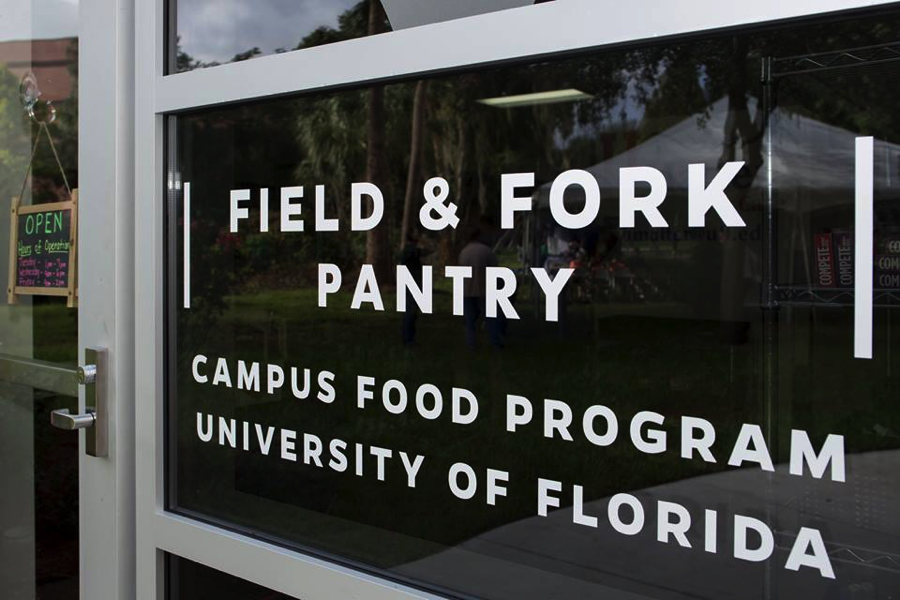 Affording college is a challenge for many students, even those with scholarships or a financial aid package that covers the cost of tuition and fees. College expenses go beyond just tuition; money is needed for books, transportation and–perhaps most important – food.
Affording college is a challenge for many students, even those with scholarships or a financial aid package that covers the cost of tuition and fees. College expenses go beyond just tuition; money is needed for books, transportation and–perhaps most important – food.
Food insecurity is a growing problem on college campuses. Students may go hungry sporadically or consistently throughout their college career. According to a University of Florida Institute of Food and Agricultural Sciences (UF IFAS) survey, 10% of the UF student body had gone hungry over the past year and found it a distraction to their studies. Based on need and community demand, UF took action to address the problem of food insecurity on their campus.
On September 1st, the university held the official opening for Field and Fork, a 1,000 square foot on-campus food pantry where UF community members (and family, if applicable) can stock up on a weeks worth of food and toiletries, no questions asked.
“Nothing better embodies the spirit of optimism — of action — than the Field and Fork Food Pantry that we’re gathered to open this morning,” said UF President W. Kent Fuchs during his opening remarks at the ceremony.
The Pantry is open to anyone with a valid campus ID, and no one is asked to verify income or need. UF community members are only required to swipe their ID for data collecting purposes.
UF’s Field and Fork has served more than 1,862 pounds of food to over 140 UF students and staff members since it opened doors on August 11th.
Public food assistance programs, like SNAP (also known as food stamps), can help reduce food insecurity. However, the lengthy application process can be a barrier for students with immediate needs. Also some students may not qualify on paper yet still have real needs. The Field and Fork program helps to address this problem. As its website explains, “ We recognize that some people who use The Pantry will have a chronic need for food while others may only have a temporary need that may not be reflected in a financial statement of need.”
Simply put, Field and Fork is feeding the Gator Good for the greater good.
University of Florida’s Field and Fork is one example of what schools and communities can do to leverage their resources to provide students with supports when financial aid isn’t enough to cover the basic cost of living.
The facility will also host workshops on how to plan and budget for healthy meals and will provide fresh produce, provided in part by the UF Community Farm. Cash donations can be made anytime to the pantry through the University of Florida Foundation website, and donation drives are in the works.
For more information, email fieldandfork@ufl.edu and follow the hashtag #GatorGood on Twitter or visit the Gator Good website to see how the University of Florida is addressing hunger and other important issues in their community.
